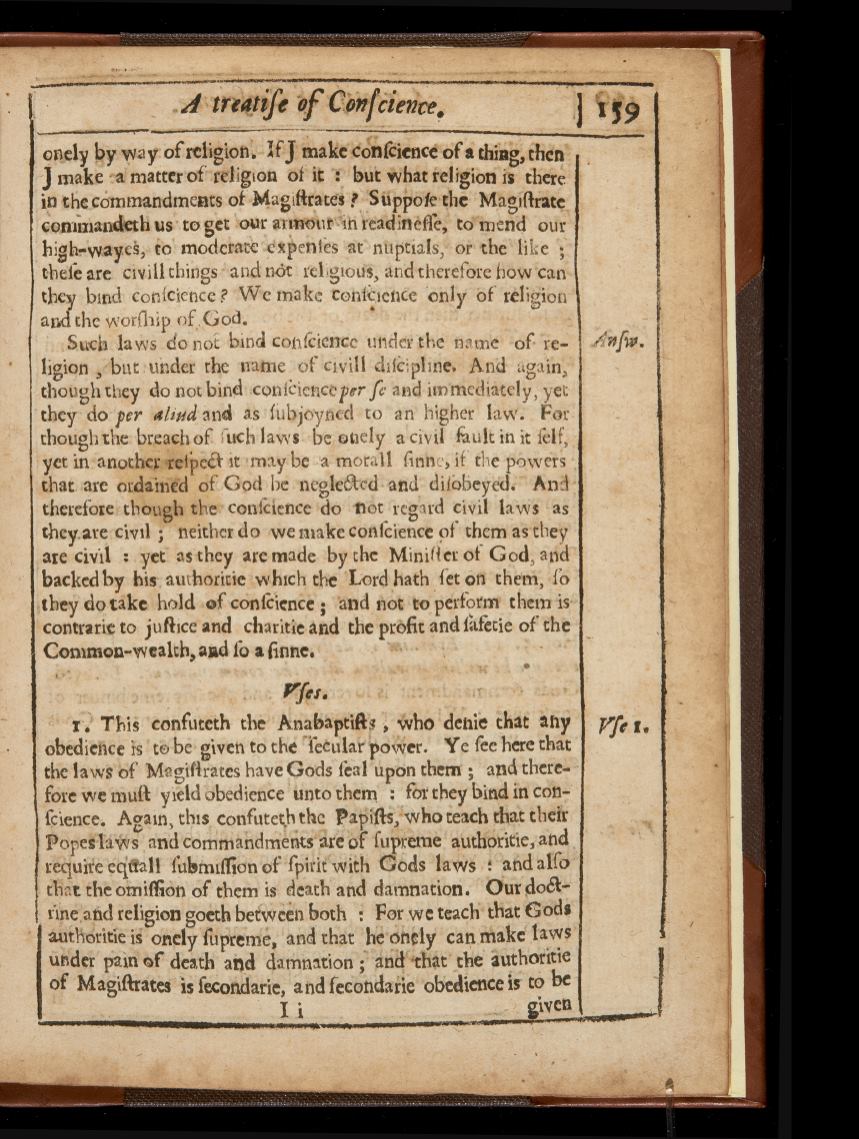

4
treatife
of'
Con
f
d
ente,
onely
by
way
of
religion.
If
make
confcience
of
a thing,
then
J make
a
matter
of
religion
of
it
:
but
what
religion
is
there
in
the commandments
of Magiflrates
?
Suppofe the Magtflrate
comiiiandeth
us
to
get our armour
in readincf%,
to mend our
high-wayes,
ro
moderate
cxp'enfes
at
nuptials,
or
the
lice
;
there are civill things
and not
rel:,gious,
and therefore
how
can
they bind
conicience
?
We
make
confcience
only
of religion
and the
Worfliip
of.
God.
Such
laws do not
bind
confcience under
the
name
of
re-
ligion ,
but
under
the
name
of
civil!
difeipline.
And
again,
though
they
do not
bind
conièience
per
f
and
immediately,
yet
they do
per
aliaud
and
as fiíbjoylned
to
an higher
law.
For
thoughthe
breach
of
'itch
laws
be
onely
a
civil
fault
in
it felf,
yet
in
another
reiject
it
may
be
a
morall
finne,
if
the powers
that
are
ordained
of
God
be
negleAed and difdheyed. And
therefore
though the
confcience
do
tot
regard civil
laws
as
they
are
civil
;
neither
do
we make
confcience
of
them
as
they
are
civil
:
yet
as
they
are
made
by the Minifi
er
of God,
and
backed
by
his
authoritie which
the Lord bath let on
them,
fó
they do
take
hold
of
confcience
;
and not
to
perform
them
is
contrarie to
juthee
and charitie
and the profit and
fàfetie
of
the
Common-wealth,
and
fo
a finne.
Pies.
i
.
This
confuteth
the
Ana_
baptifls
,
who
denie
that
any
obedience
is
to
be
given
to the
lecular
power.
Ye
fee
here
that
the
laws
of
Magiflrates
have
Gods
real
upon them
;
and
there-
fore
we
muff
yield obedience
unto
them
:
for
they
bind
in
con-
fcience.
Again, this confuteth the Papifls,
who
teach
that their
Popes
laws
and commandments
are
of
fupreme authoritie,
and
require
egí
all
fubmrflion
of
fpirit
with
Gods laws
:
and allo
that
the
omiffion
of
them
is
death and
damnation.
Our
do6-
tine and religion goeth between
both
:
For
we
teach
that Gods
authoritie
is
only
fupreme, and
that
he
only
can make laws
under pain
of
death
and
damnation
;
and
that the
authoritie
of
Magiftrates
is
fecondarie,
and
fecondarie obedience
is
to be
I
i
given
159
rfet.
ìl

















